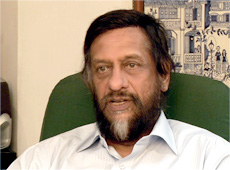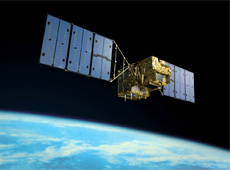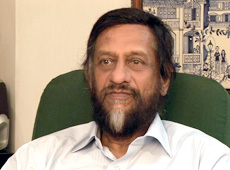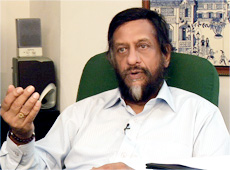Q. What are your expectations for the standardization of the Global Carbon Observation and Analysis System?

I think these systems are extremely important because to create a consistent database, you must have a comprehensive data-collection system. If every country was going to develop its own database according to its own methods, you may not have compatible data. So I think a global system is extremely important. Also, I think that learning and sharing experience - what is being done in different countries - is very important. But to me, the most important aspect of a global system is consistency. To come up with a proper assessment of climate change in different parts of the world, it’s essential to have compatible data. Q. How will the standardized Global Carbon Observation and Analysis System contribute to the activity of IPCC? I think this integration is extremely important, to assess climate change both globally and locally in different regions of the world. Our expectation is that the integration will get refined over a period of time. We need to ensure that there is proper observation and measurement in every part of the world, and that quality control is maintained, so the design has to be consistent and compatible.
Q. Recently, a number greenhouse-gas observing satellites, such Japan’s IBUKI, have come on line. What are your expectations for these satellites?

Greenhouse Gases Observing Satellite IBUKI
I think this is very powerful technology that can help us track the level of emissions and concentration in different parts of the globe. For example, it could help us understand how seasonal activities are affecting emissions in different parts of the world, and what is driving these emissions. So I think this is extremely valuable information. I hope researchers will use it on a large scale to come up with some findings that the IPCC can make use of. Q. In the Kyoto Protocol, the developed countries agreed to reduce their emission of greenhouse gasses to 5% below 1990 levels by 2008. However emissions have increased by 26%. What do you think of this situation? Well, it’s odd that the UN framework on climate change came into existence in 1992, but emissions continue to grow worldwide. That clearly shows that the global community has really not been able to implement the framework. I think the world has to find more effective mechanisms by which we can implement the requirements of the UN framework on climate change. In the fourth assessment report of the IPCC, we have clearly stated that between 1970 and 2004, greenhouse gas emissions have grown by 70%, and in some parts of the world emissions are continuing to increase at an even faster rate than in the past. That clearly is a trend that cannot continue.
I think data of this kind is very important for educating the public and leaders in different parts of the world to show how ineffective we have been in solving the problem. I think this visual presentation is extremely important, because it can help policymakers fully understand what is happening in different parts of the globe. This is extremely valuable information, but the manner of presentation is equally important and valuable.
Q. What is your message to the ministers of the world?

My message to environment ministers would be that information is power. Information is extremely important. But we have to make use of this information. And therefore, I think all the data that is being made available should be studied, should be analyzed. And should lead to decision making. In this day and age, in the 21st Century, we have such excellent and sophisticated ways of collecting and integrating information, but we must make the best use of it. I think this is a very valuable opportunity to see the power of this information and how it can be used for decision making. Q. What are your expectations for the Japanese government and JAXA? I’ve been a great admirer of Japanese society, and I have visited Japan at least 130 times. I’ve seen how Japan reacted to the oil price shock - you have made your industry and your transport sector much more energy efficient. In several respects Japan can be a model for the rest of the world, and I hope you’ll continue to lead in that direction, because it clearly shows that people can live well. Also, Japanese environmental technology is excellent. I hope Japan will use this technology to follow the Kyoto Protocol, and continue to do better and better at the reduction of greenhouse gases.
Rajendra K. Pachauri
Chairman, Intergovernmental Panel on Climate Change (IPCC)
Dr. Pachauri received an M.S. in Industrial Engineering (1972), a Ph.D. in Industrial Engineering and a Ph.D. in Economics from North Carolina State University in the United States. He has been Director-General of the Tata Energy Research Institute (TERI) since 2001. In 2002, he became the third Chairman of Intergovernmental Panel on Climate Change (IPCC). In 2007, Dr. Pachauri won the Nobel Peace Prize on behalf of the IPCC, with the former U.S. Vice-President Al Gore, for achievements against climate change. He has been on the board of directors of the Institute for Global Environmental Strategies (IGES) since 2008. His specialties are Environmental and Energy problems.
Researching the Carbon Dioxide Cycle
World’s First High-Resolution Global Forest/Non-Forest Map
Japan Contributes to Efforts to Solve Environmental Problems
Policymakers Worldwide Need Unified Carbon Cycle Data
Reliable Data Essential for Greenhouse Gas Reduction

